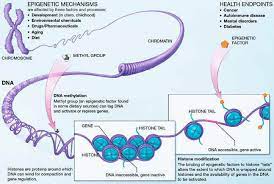Will we reach the singularity by 2035? David Wood on progress towards artificial general intelligence, the singularity, and how to ensure it benefits society. The concept of the singularity refers to a point in the future when artificial intelligence (AI) will have surpassed human intelligence in a wide range of tasks and will be able to improve itself at an exponential rate. The idea of when or even if the singularity will be reached is a topic of much debate and speculation. Some experts predict that it could happen as soon as 2035, while others believe that it may never happen.
It’s important to note that achieving AGI (Artificial General Intelligence) is a very difficult task, and the progress towards AGI has been slower than initially predicted. There is also a lot of debate among experts about what exactly AGI is, and how close we are to achieving it.
Moreover, it is important to consider the ethical and societal implications of the development of AGI. Ensuring that AI benefits society will require ongoing collaboration between researchers, policymakers, and industry leaders. It will also require research into the social and economic impacts of AI, as well as the development of regulations and policies to govern its use.
In summary, it is difficult to predict whether we will reach the singularity by 2035, but it is important to consider the ethical and societal implications of the development of AGI and to ensure that it benefits society.

![]()
When you look at what the new generative models are doing – things like ChatGPT, DALL-E 2, Google’s PaLM and many other systems – they’re not perfect, they make mistakes, and they can generate nonsensical or biased outputs. However, they are capable of producing highly coherent and fluent text that can be hard to distinguish from text written by humans. These models are also able to perform a wide range of language tasks, such as translation, summarization, and question answering.
It’s important to note that these models are not sentient, they don’t have consciousness or feelings, they are based on sophisticated algorithms that are trained on large amounts of text data. The quality of the outputs depends on the quality and quantity of the data used to train the model, as well as the architecture and hyperparameters of the model.
Moreover, these models are still in the development phase, they are not yet perfect and researchers are constantly working to improve their performance and reduce their errors. For example, researchers are working on methods to reduce the models’ tendency to generate biased or nonsensical text.


In summary, new generative models like ChatGPT, DALL-E 2, and PaLM are capable of producing highly coherent and fluent text that can be hard to distinguish from text written by humans. However, they are not perfect and they make mistakes, they are still in the development phase and researchers are working to improve their performance.

![]()
The singularity and longevity The singularity, as it is often referred to, is a theoretical point in the future when artificial intelligence (AI) will have surpassed human intelligence in a wide range of tasks and will be able to improve itself at an exponential rate. Some experts predict that it could happen as soon as 2035, while others believe that it may never happen.
Longevity, on the other hand, refers to the ability to live a long and healthy life. Advances in technology and medicine have led to significant improvements in human longevity in recent years, and it is possible that these trends will continue in the future.
There is a connection between the singularity and longevity, as some experts believe that the development of advanced AI could lead to breakthroughs in the fields of medicine and biotechnology, which would in turn lead to significant increases in human longevity. For example, it is suggested that advanced AI could be used to analyze large amounts of medical data, identify new treatments for diseases, and even develop personalized medicine. Additionally, it is believed that AI could play a key role in the development of regenerative medicine and life extension technologies.
However, it is important to note that the connection between the singularity and longevity is still largely speculative, and it is not clear how these fields will develop in the future. Additionally, it is important to consider the ethical and societal implications of the development of advanced AI and the impact on human life.
In summary, the singularity refers to a hypothetical point in the future when artificial intelligence surpasses human intelligence, while longevity refers to the ability to live a long and healthy life. There is a connection between the singularity and longevity, as some experts believe that the development of advanced AI could lead to breakthroughs in the fields of medicine and biotechnology, which would in turn lead to significant increases in human longevity. However, the connection is still largely speculative, and it is important to consider the ethical and societal implications of the development of advanced AI and the impact on human life.

![]()
Will the singularity be positive or negative? The potential impact of the singularity, if and when it occurs, is a topic of much debate and speculation. Some experts believe that it could have a positive impact on humanity, leading to significant advances in fields such as medicine, science, and technology, and improving the overall quality of life for people.
On the other hand, others believe that the singularity could have negative consequences for humanity. For example, it is possible that advanced AI could become uncontrollable and pose a threat to human safety. Additionally, the development of advanced AI could lead to job displacement and economic disruption, and could exacerbate existing social and economic inequalities.
It’s also important to note that the development of advanced AI raises a number of ethical and societal issues, such as the responsibilities of AI systems, the limits of AI autonomy, and the use of AI in decision-making.
In summary, the potential impact of the singularity is a topic of much debate and speculation. While some experts believe that it could positively impact humanity, others believe that it could have negative consequences. It’s important to consider the ethical and societal implications of the development of advanced AI, and to ensure that it benefits society.

![]()
It’s up to us It is true that the future of artificial intelligence (AI) and the potential impact of the singularity is ultimately up to us, as a society. The development of AI is driven by advances in technology and research, but the direction and ultimate outcome of these developments are shaped by the choices that we make as a society.
It is important for researchers, policymakers, and industry leaders to work together to shape the development of AI in a way that benefits society. This includes ensuring that AI is developed and used in a way that is ethical, responsible, and inclusive. It also includes considering the potential impact of AI on jobs, the economy, and society, and taking steps to mitigate any negative consequences.
Additionally, it is important for individuals to stay informed and engaged with the development of AI and its potential impact on society. This includes being aware of the latest research and developments in the field, participating in discussions and debates about the future of AI, and making informed choices about the use of AI in our daily lives.
In summary, the future of AI and the potential impact of the singularity is ultimately up to us, as a society. It is important for researchers, policymakers, industry leaders and individuals to work together to shape the development of AI in a way that benefits society.

![]()
The youthful side of longevity Longevity refers to the ability to live a long and healthy life. Advances in technology and medicine have led to significant improvements in human longevity in recent years, and it is possible that these trends will continue in the future. The youthful side of longevity refers to the idea of not just living longer, but also maintaining a youthful and healthy state throughout one’s life span.
This can be achieved through various means such as healthy lifestyle choices, regular exercise, and a balanced diet. Additionally, research in fields such as gerontology and regenerative medicine is focused on understanding the underlying biology of aging and developing interventions that can delay or reverse the aging process.
The youthful side of longevity also includes the idea of maintaining cognitive and physical abilities as we age, rather than having them decline. This can be achieved through brain training, learning new skills, and staying mentally and socially engaged.
Moreover, longevity research also encompasses the field of anti-aging, which is the study of ways to prevent, delay or reverse the aging process. The goal of anti-aging research is to increase our understanding of the aging process, identify the underlying causes of age-related diseases and to develop new treatments and technologies that can extend healthy lifespan.
In summary, the youthful side of longevity refers to the idea of not just living longer, but also maintaining a youthful and healthy state throughout one’s life span. This can be achieved through various means, such as healthy lifestyle choices, regular exercise, and a balanced diet, as well as through advances in gerontology and regenerative medicine, brain training, and anti-aging research.
